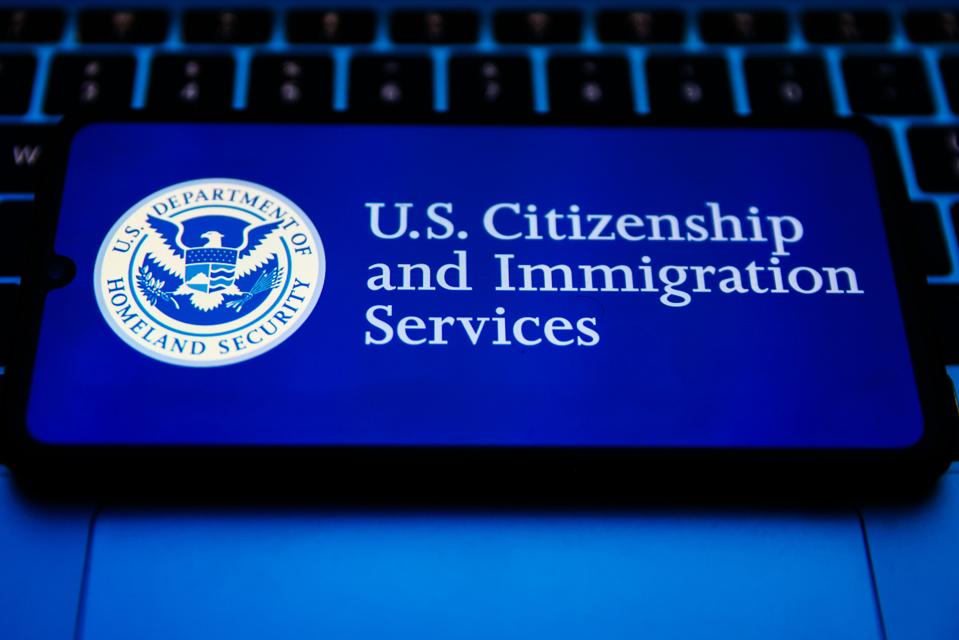In a new final rule, U.S. Citizenship and Immigration Services has changed the H-1B registration selection process. The new approach will be “beneficiary-centered” and aims to discourage employers from sending in multiple registrations for the same individual without intending in advance to make legitimate job offers. The rule will go into effect in 2024, within 30 days of publication and before the H-1B registration process for the FY 2025 H-1B cap starts on March 6, 2024.
Background
H-1B status often represents the only practical way a high-skilled foreign national, including an international student, can work long-term in the United States. For the past two decades, the annual limit on H-1B petitions has been low—about 0.05% of the U.S. labor force. As a result, employers have exhausted the supply yearly. USCIS uses random selection—a lottery—when companies file more H-1B applications (or registrations) than the annual limit of 85,000 (65,000 plus a 20,000 exemption for advanced degree holders from U.S. universities).
In 2020, USCIS started requiring employers to submit H-1B registrations electronically that included basic information rather than mailing in more time-consuming and expensive completed applications. Lowering the bar to apply, while welcomed by employers, had an unintended consequence—more instances of multiple registrations submitted for the same individuals. After finding many such cases in 2023 for the FY 2024 H-1B cap, USCIS decided to act.
A National Foundation for American Policy analysis found that even if beneficiaries with multiple registrations were excluded from the lottery in 2023, USCIS would have rejected over 75% of H-1B registrations for FY 2024 due to the low annual limit. Due to the demand for high-skilled labor, H-1B registrations with only one employer increased by 66% between FY 2022 and FY 2024.
What The Rule Changes
USCIS included changes to the H-1B selection process in a proposed H-1B visa rule published on October 23, 2023. The agency published the H-1B selection changes as a final rule by splitting it off from the longer proposed rule.
“Through this rule, DHS is implementing a beneficiary-centric selection process for H-1B registrations,” according to DHS. “Instead of selecting by registration, U.S. Citizenship and Immigration Services will select registrations by unique beneficiary. Each unique beneficiary who has a registration submitted on their behalf will be entered into the selection process once, regardless of how many registrations are submitted on their behalf.”
Selecting H-1B registrations by unique beneficiaries was recommended in a May 1, 2023, Forbes article.
According to DHS, “If a beneficiary is selected, each registrant that submitted a registration on that beneficiary’s behalf will be notified of the beneficiary’s selection and will be eligible to file a petition on that beneficiary’s behalf during the applicable petition filing period.” USCIS plans to use passport information to identify beneficiaries.
Analysis
Employers favor the new approach because they see it as leveling the playing field since the chances of a particular foreign national being selected are the same regardless of how many employers submit a registration for them, according to Kevin Miner of Fragomen. He also thinks USCIS might no longer need to run multiple lottery rounds, which could help international students who might otherwise exhaust their time waiting in F-1 status.
Miner believes a bidding war could result from the new beneficiary-centric approach and that employers are unlikely to know if an individual has multiple registrations submitted for them. Given the time and expense, companies may wish to talk with individuals before the registration process starts.
The Department of Homeland Security eliminated a measure in the proposed rule to prohibit multiple H-1B registration entries by related entities on behalf of the same individual. “This is a good change, and DHS seems to have recognized the concern raised by some commenters that there are sometimes legitimate business reasons for such registrations,” said Miner. “For instance, a large conglomerate company may have different divisions or entities that each may want to hire a particularly promising student.” He notes a beneficiary-centric selection process eliminates an advantage of more than one employer submitting a registration.
“The shift to a beneficiary-centric lottery process is welcome news,” said Lynden Melmed of BAL. “Most companies should see a 5% to 10% increase in their selection rate. Still, the government projects that there will be almost five times as many registrants as H-1B slots.”
Kevin Miner agrees with Melmed. “On balance, the rule seems to strike a balance between ensuring fairness in the system and providing flexibility for individuals with multiple job offers. It doesn’t change the reality that until Congress raises the H-1B quota, businesses will continue to struggle to retain highly-skilled foreign national talent.”

